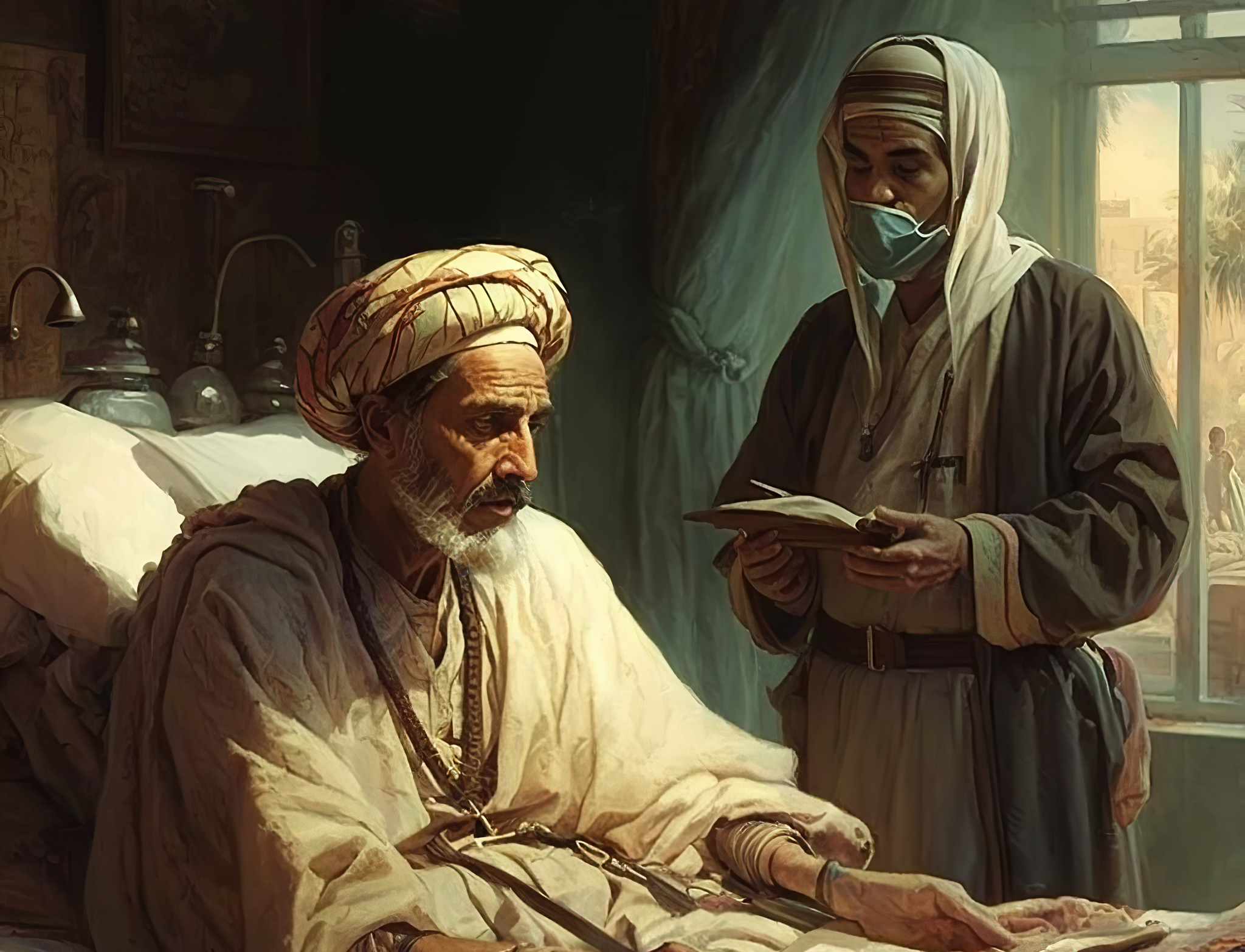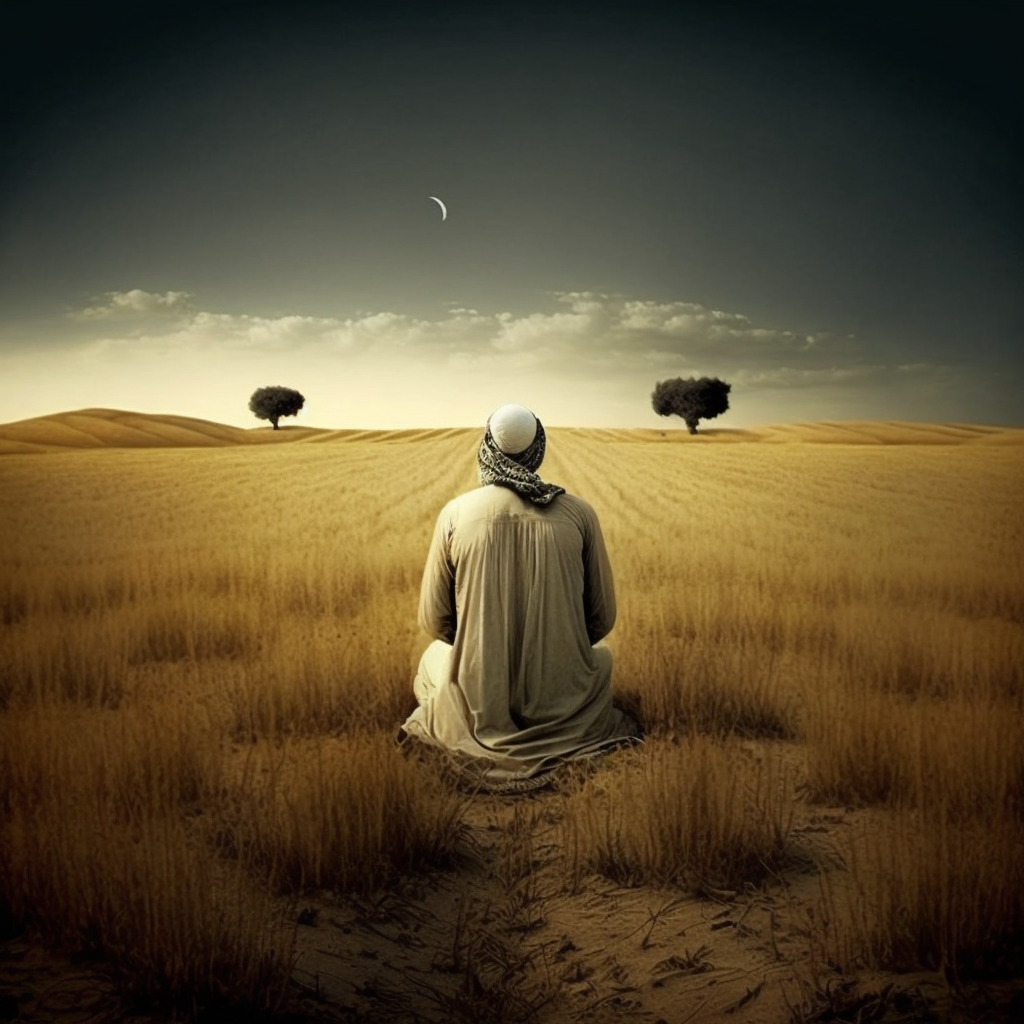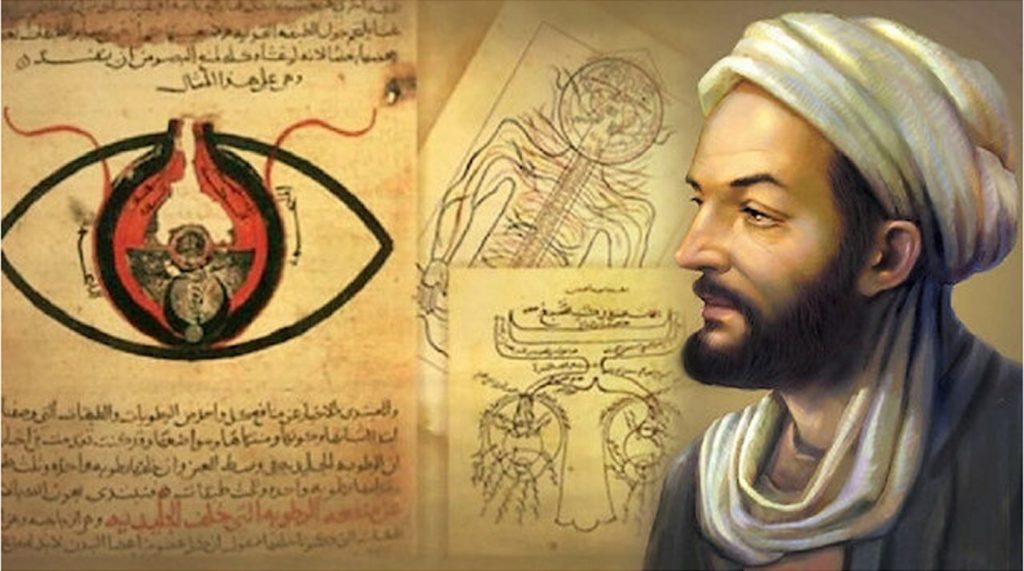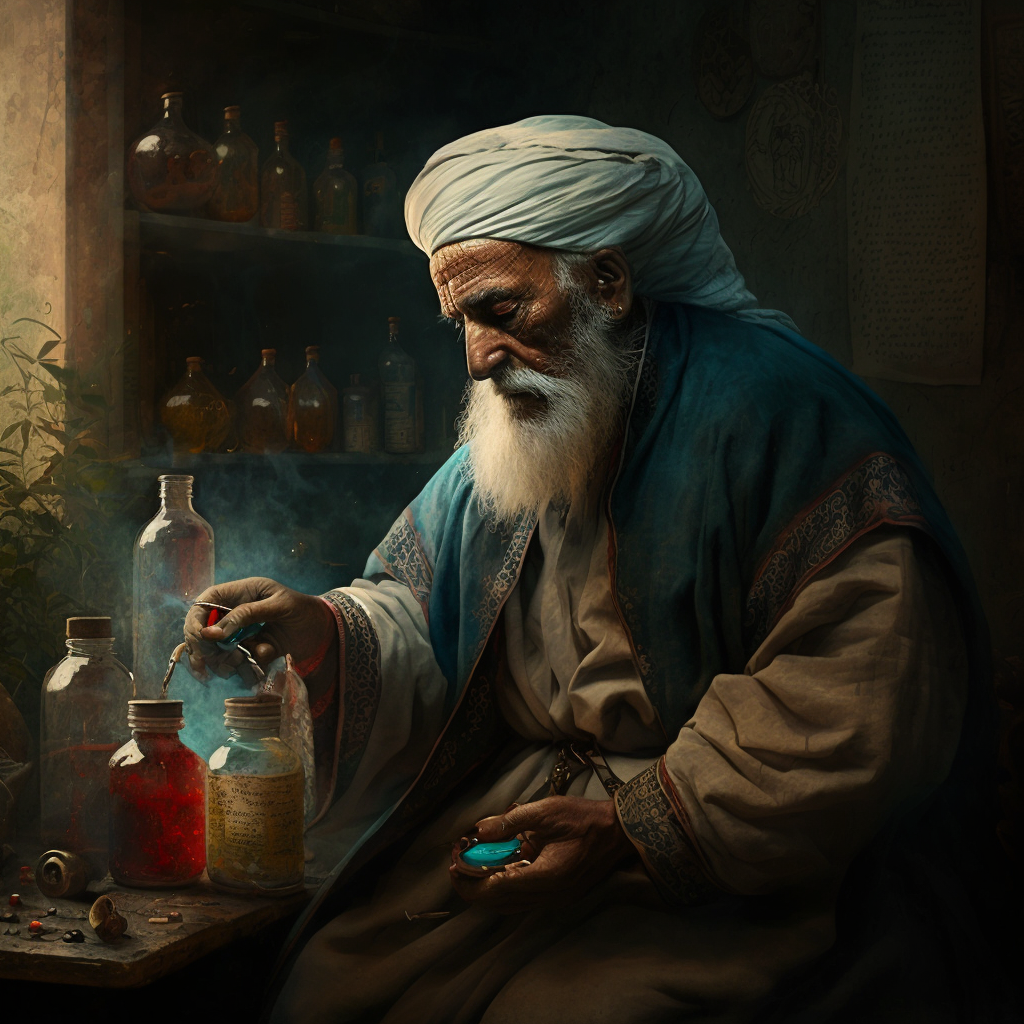
The modern medical system has many benefits, but it also has many drawbacks. With modern medicine’s departure from the religio-centric paradigm, the concept of the soul has also died. Thus, the entire outlook of the Western approach is atomistic and material. This poses many problems with those of a religious or spiritual leaning.

“And He is the One Who has made the night a (wrapper-like) covering for you and made sleep (a means of) rest (for you) and the day a time to get up (for work)”
(al-Furqan, 25:47).
The modern medical system has many benefits, but it also has many drawbacks. With modern medicine’s departure from the religio-centric paradigm, the concept of the soul has also died. Thus, the entire outlook of the Western approach is atomistic and material. This poses many problems with those of a religious or spiritual leaning.
In order for individuals to be treated properly for their illnesses, they must be healed holistically. This includes healing not just the body but the mind and soul. In the Islamic Golden Age, the medical system was Unani (Greco-Islamic), in this system of medicine, for a patient to be healed, a fundamental principle was followed; the root of disease is the misalignment from nature. Therefore, to heal someone, the physician would ensure that the individual was realigned to nature, resulting in the individual becoming healthy once again. As the Holy Quran states in Surah al-Furqan (shown above).
However, in the modern system, this holistic approach is not a priority, as the human being is reduced to his mere material essence. The metaphysical plays no role, just as church and state had been divided, as has the soul from man’s physical being (Locke, 1689). There is no concept of ‘healing’ the individual, rather, it is about ensuring the individual returns to being a financially productive member of society. Freud illuminates this by stating, the success of the medical system is to transform “your hysterical misery into common unhappiness” (Freud and Breur, 1895).
Islam on the Concept of Healing
According to Islam, the human being consist of Nafs (lower self), Qalb (spiritual heart), Ruh (spirit); these three sit within the physical heart, Aql (intellect/mind) sits in the brain and Jism (body) (Qadri, 2022). This is a far more complex view of the physical and metaphysical elements of the human compared to the modern reductionist approach to the human. From henceforth, when this author refers to the heart, it means the heart containing nafs, qalb, ruh.
This complex view can be further understood from the hadith of the Holy Prophet ﷺ “beware, in the body there is a piece of flesh; if it is sound, the whole body is sound and if it is corrupt the whole body is corrupt, and hearken it is the heart (Sahih Bukhari, B2, H45). So much emphasis is given to the heart in Islam, as it is the seat of power. It is indeed both where the human being commands himself or the place where he loses himself. Thus, it is paramount for medical professionals to understand the effects the heart has on the body and disease, and vice versa. “The human soul can be healthy or unhealthy in the same way that its body can be healthy or unhealthy. When the soul is healthy, all its faculties will be tranquil without any psychological symptoms manifesting such as anger, panic, depression. This tranquillity of the soul is its healthy conditions and that of its safety, just as the health of the body and its safety lies in the tranquillity and balance of its [faculties]” (al-Balkhi, 2013 [1479]).

For healing to take place, the human being must be observed holistically. To see where the illness lies. Is it spiritual, physical, emotional, or psychological, and how do all of these relate to one another in terms of that individual? The state of a person’s heart affects the prescription of treatment (al-Jawziyya, 912). The entanglement of the spiritual, emotional, and psychological elements of the human must be investigated and understood to truly heal someone. An illness may be physical, but it can affect someone internally, their mind, soul, and spirituality. Likewise, a spiritual disease begins inside, then can manifest itself with physical ailments. It is the reason why Muslim Physicians were expected to be pious, religiously practising individuals, so that they may provide holistic healing to their patients.
INSERT
A Holistic View on Healing
Islam provides us with the answers to all aspects of our lives. Within the Islamic framework, an entire wealth of sciences and arts flourished during the Islamic Golden Age. Within this framework, the medical fields were developed to such a degree that we in the modern world are still benefiting from them.
Today, when individuals are sick, they go to the doctor, and they may prescribe medication. However, it more often than not abates the symptoms but does not heal (cure) the individual. Islam looks to heal the individual in his/her own entirety and holistically. In order to do this, when treating the individual, all aspects of the individual are healed; the mind, body and spirit.
What is healing? Healing is an art. Traditionally, physicians would holistically investigate the patient by understanding their history, heritage, environment, job, spirituality, religiosity, emotional and psychological well-being, all was taken into consideration, and treatment was prescribed based upon that.
According to Unan, for healing to take place, six factors must be in balance and alignment, the author entitled this the Six Principles of Living (Usul al-Hayy). The six are Food and Drink, Bodily Exercise and Rest, Mental Work and Rest, Sleep and Wakefulness, Retention and Excretion from the body, and Environmental Quality (air, nature, and greenery) (Ibn Sina, 1999 [1025]).

Finding the Right Balance
Without the above being in the right balance, illness can arise. A common example, if one has not had a good night’s sleep, one understands how one is affected by this for the following few days. This can affect someone’s mood, irritability, cognition, lack of appetite and creates lethargy. People who thus have prolonged effects of these symptoms can begin to develop complex neurological and physical ailments. Thus, the physician will treat the cause, by encouraging the individual to realign their sleep. If medication is prescribed, it would be to further support this realignment.
Illustration of the Power of Holistic Healing (and How the Muslims Pursued This)
A common clinical example, people would visit the physician for stomach distress and anxiety. Today it can be understood as IBS. The Muslim doctors understood that this disease was connected to the stomach and brain. Due to the age-old adage, “the root of all illnesses is the stomach”, which is the principle derived from the hadith of the Holy Prophet ﷺ:
The stomach is a central spring of the human body. And various veins are the streams coming into it. So, if the stomach is healthy, then the various streams (intestines, veins and arteries) will be healthy. And, if the stomach is unhealthy, then through the streams the whole body will be unhealthy.
(al-Tabarani, 434)
The Muslim Physicians investigated this tradition and developed a group of medicines called Jawarish. This clinical formulation is rooted in the stomach and brain, but can then be adjusted to treat other ailments from headaches to liver disease; if the stomach/brain is thought to be the root of that illness.
In the last decade, this phenomenon of treating the stomach to treat illnesses, is known as the gut-brain connection. The Muslims knew this for over a millennium and they received this knowledge directly from the Holy Prophet ﷺ. Most recently, people suffering from IBS are now being prescribed antidepressants (Ford, et al, 2014), as it affects the neurons in the stomach, and has a calmative effect on their symptoms. This was done a millenia ago by the pious prudent Muslim physicians.

This shows the power of holistic healing, deeply rooted in the Islamic tradition. At the same time, it is important to understand that this essay is not an anti-science, anti-progress, nor anti-modernist essay. Rather, modern discoveries and research should be put within a holistic and religiously rooted approach rather than reducing and atomising, which limits the overall benefit of the treatment. There absolutely is importance in scans, antibiotics, and allopathic medications. However, we shouldn’t disregard the entirety of what makes up the human being. People are still walking with illnesses despite taking prescribed medications. The human must be holistically healed as has been divinely decreed. Without healing the mind, body and soul in conjunction with one another, and without realigning the human being back to the natural rhythm of life, based upon the Six Principles of Living, illness will still exist within the individual.
Al-Balkhi, R., (2013). Sustenance of the Soul. Translated by Badri, M. London: The International Institute of Islamic Thought.
Al-Jawziyy,a (912). Tibb al-Nabawiyyah (The Prophetic Medicine), Chapter 1.
al-Tabarani. al-Mujam al-Kabir.
Bukhari, (846). Sahih Bukhari.
Freud, S., & Breuer, J., (1895). Studies on Hysteria. London, UK: Hogarth Press.
Ford, A.C., et al (2014). Effect of Antidepressants and Psychological Therapies, Including Hypnotherapy, in Irritable Bowel
Syndrome: Systematic Review and Meta-Analysis. American Journal of Gastroenterology, 109(9), 1350-1365. doi: 10.1038/
ajg.2014.148.
Ibn Sina, (1999 [1025]). The Canon of Medicine. Translated by Bakhtiar, L. New York, NY: AMS Press.
Locke, J., and Popple, W., 1965. A letter concerning toleration (pp. 220-6). London: Churchill.
Qadri, T., (2011). Irfan-ul-Quran. Lahore: Minhaj Publications.